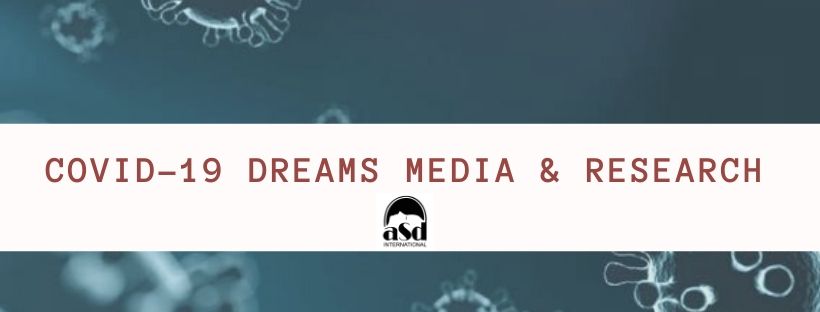
IASD MEDIA AND RESEARCH PORTAL
Most recent update to this page September 25, 2020
Currently there are many people around the globe reporting “Covid-19 dreams”, which reflect the unexpected and somewhat uncontrollable situation in which we now all find ourselves. Some dreams may seem almost silly, as they put the dreamer’s unusual responses into perspective. Covid-19 dreams can also be nightmarish reflections of psychological stress from the pandemic, not directly naming or reflecting the virus itself, but rather picturing or acting out the dreamers emotional response (e.g. metaphorically picturing the virus as a storm, wild animal, monster, or an invisible, uncontrollable entity). Dreams during Covid-19 can span across any and every kind of dream possible. And while most of us are staying at home right now, we are still discovering all that makes dreams unique. With increased REM and dream recall from more “quarantine sleep”, and subjects such as lucid dreaming informing the public, there are also beneficial opportunities for soul growth by paying attention to our dreams.
This page will be updated on a regular basis during the Covid-19 pandemic. For questions about submitting information (only about Covid-19 and Dreams) contact IASD Advertising and Public Relations Committee Chair: Jean Campbell, jccampb@aol.com
Covid-19 Dreams in the Media
Many IASD members are in the news right now. Here is a collection of interviews and articles featuring our esteemed membership.
October 12, 2020
Here are 18 more COVID-19 articles from late Sept into October 2020 –all dealing at least in part with the 4 articles in DREAMING mentioned in the APA press release below.
What We Dream When We Dream About Covid-19
The New York Times
Deirdre Barrett, a psychologist at Harvard Medical School and the author of “Pandemic Dreams,” has administered dream surveys to thousands of …
Covid-19 pandemic and lockdowns leave their marks on people’s dreams, study suggests
NBC News
COVID-19 spurs anxious, upsetting dreams
Deirdre Barrett, PhD, Harvard University. Women’s dreams have been more negatively affected by COVID-19 than men’s dreams, according to this …
Women are having more angry, sad dreams during the COVID-19 pandemic compared with men … Yahoo Sports
Dreaming of COVID-19
MedPage Today
In the earlier stages of the pandemic, dreams tended to be clustered into literal and metaphorical interpretations of the virus, said Deirdre Barrett, PhD, …
Crowds, masks and homework: the pandemic creeps into our nightmares
Pledge Times
Why so many of us are having anxiety dreams
DispatchLIVE
Dr Deirdre Barrett, a psychologist at Harvard Medical School who has been researching dreams for four decades, has written a book, Pandemic …
Women’s dreams have been more strongly affected by the coronavirus pandemic than men’s
PsyPost
Having bizarre dreams during the pandemic? You’re not alone Jewish Herald-Voice
What we dream when we dream about COVID-19
Baltimore Sun
Deirdre Barrett, a psychologist at Harvard Medical School and author of “Pandemic Dreams,” has administered dream surveys to thousands of people …
https://www.pourquoidocteur.fr/Articles/Question-d-actu/33939-L-epidemie-impacte-reves-femmes
https://super.abril.com.br/comportamento/andou-sonhando-com-a-covid-19-voce-nao-esta-sozinho/
![]()
September 25, 2020 News Release
COVID-19 SPURS ANXIOUS, UPSETTING DREAMS
Women especially affected, studies show
WASHINGTON — The anxiety, stress and worry brought on by COVID-19 is not limited to daytime hours. The pandemic is affecting our dreams as well, infusing more anxiety and negative emotions into dreams and spurring dreams about the virus itself, particularly among women, according to research published by the American Psychological Association.
In a special section in the journal Dreaming, researchers reported on the results of four studies from around the world about people’s dreams during the pandemic. Previous research has suggested that our dreams often reflect what’s happening in our waking lives and that other crises–including war, natural disasters and terrorist attacks–have led to an increase in anxious dreams. The four studies in this special section found that the same is true of COVID-19.
“All of these studies support the continuity hypothesis of dreaming: That dreams are consistent with our waking concerns rather than being some outlet for compensation, as some older psychoanalytic theories had hypothesized,” said Deirdre Barrett, PhD, editor of Dreaming and an assistant professor of psychology in the Department of Psychiatry at Harvard Medical School. “The higher levels of anxiety, dreams about illness and death in general, and COVID-19 specifically, are in line with that.”
Overall, the new studies also suggest that women’s dreams have been more strongly affected by the pandemic than men’s–possibly, Barrett suggested, because women are bearing more of the burden of caregiving, job loss and other hardships.
“Dreams can help us understand our emotional reactions to the pandemic,” Barrett said. For example, one mother in a study by Barrett dreamed that her child’s school contacted her to say that the child’s whole class was being sent to her condominium to be home-schooled for the duration of the pandemic. “When mothers of young children hear that dream, there is a laughter but also usually a strong empathy at the overwhelmed feeling the dream dramatizes. Your dreams can make you more aware of just what about the pandemic is bothering you the most–and sharing them with trusted others is a good conversation-starter for talking about these shared feelings,” Barrett said.
The four COVID-19 articles in the issue are:“Dreaming and the COVID-19 pandemic: A survey in a U.S. American sample” [PDF, 111 KB]Michael Schredl, PhD, Zentralinstitut für Seelische Gesundheit, and Kelly Bulkeley, PhD, The Sleep and Dream Database This study of more than 3,000 U.S. adults surveyed in early May 2020 found that people who had been most strongly affected by the pandemic—such as those who had gotten sick or lost their job—also reported the strongest effects on their dream life (heightened dream recall, more negative dreams and more pandemic-related dreams). Women and people with more education also reported stronger effects of the pandemic on their dreams. The findings suggest that changes in the frequency, tone and content of dreams can help identify those at risk for mental health problems during the pandemic, according to the researchers. Contact: Michael Schredl
“Dreams about COVID-19 vs. Normative Dreams: Trends by Gender” [PDF, 85 KB]Deirdre Barrett, PhD, Harvard University Women’s dreams have been more negatively affected by COVID-19 than men’s dreams, according to this international study of 2,888 participants. The researcher asked online survey respondents to recount their dreams about the pandemic and then compared the responses to a database of dreams from before the pandemic. Overall, women showed significantly lower rates of positive emotions and higher levels of anxiety, sadness, anger and references to biological processes, health and death in their pandemic dreams compared with the pre-pandemic dreams. Men’s pandemic dreams showed slightly higher levels of negative emotions, anxiety and death than in pre-pandemic dreams, but the effects were less pronounced than they were for women. Contact: Deirdre Barrett
“Dreaming in the Time of Covid-19: A Quali-Quantitative Italian Study” [PDF, 161 KB] Ilaria Iorio, PhD, Massimiliano Sommantico, PhD, and Santa Parrello, PhD, Universita degli Studi di Napoli Federico II Researchers analyzed the dreams of 796 Italian participants, all of whom completed a dream questionnaire in April and May 2020 and described their most recent dream in detail. Twenty percent of the dreams included an explicit reference to COVID-19, the researchers found. Overall, women reported higher emotional intensity and a more negative emotional tone in their dreams, as did participants who knew people affected by COVID-19. Contact: Massimiliano Sommantico
“Pandemic Dreaming: The Effect of COVID-19 on Dream Imagery, a Pilot Study” [PDF, 112 KB]Cassidy MacKay, BSc, and Teresa L. DeCicco, PhD, Trent University Pandemic-era dreams resemble the dreams of people with anxiety, suggests this study of Canadian college students. Researchers analyzed detailed dream journals from 19 Canadian college students recorded between mid-February and mid-March 2020, as the pandemic and pandemic-related physical distancing restrictions were taking hold in Canada. They found that the pandemic-era dreams contained more location changes, as well as animal, head, food and virus-related dream imagery compared with a control group of people who kept dream journals before the pandemic. This type of dream imagery is similar to previous findings of the dream imagery of people experiencing waking day anxiety, according to the researchers.
Contact: Teresa L. DeCicco
The American Psychological Association, in Washington, D.C., is the largest scientific and professional organization representing psychology in the United States. APA’s membership includes nearly 121,000 researchers, educators, clinicians, consultants and students. Through its divisions in 54 subfields of psychology and affiliations with 60 state, territorial and Canadian provincial associations, APA works to advance the creation, communication and application of psychological knowledge to benefit society and improve people’s lives.
Deirdre Barrett
Deirdre Barrett, PhD (USA) has done over 40 media interviews since the beginning of the Covid-19 outbreak. Deirdre is a psychologist on the faculty of Harvard, where she teaches courses on dreams and hypnosis. She is a Past President of both the International Association for the Study of Dreams and the Society for Psychological Hypnosis. She has written four books, including The Committee of Sleep, and is the editor of four more, including Trauma and Dreams. She is Editor-in-Chief of IASD’s journal Dreaming. 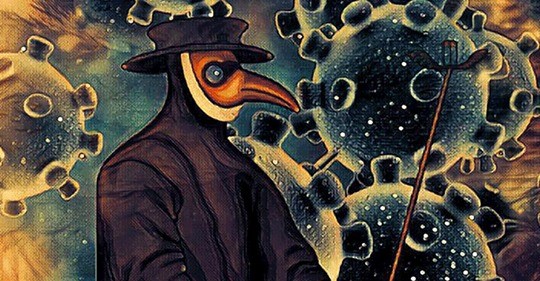
(artwork by Deirdre Barrett)
The NY Times
National Geographic
VICE
TIME
Vogue
Wired UK
LA Times
The Cut
GEN (at Medium.com)
The Independent UK
Mysterious Universe
Coast to Coast AM
WGN Radio (10+ minute segment)
WUNY New York
Science Times
NY Post
Yahoo Sports
Global Villages
WFSB EyeWitness News
Inside Hook
The Post
Refinery 29
MIX 97-3
The Greensboro News and Record
My Pig Radio
Harper’s Bazaar
Beliefnet
My Kool Radio
Morning Brew
Huffington Post Canada
I Heart Intelligence
KTLA
Morning Brew / Thakoni
Abhikha Bartak
UP News
Your Tango
SAN DIEGO UNION TRIBUNE (Spanish):
BBC Interview 4-21-2020
Inverse
Australian Radio
Boston 25 News
KIRO
Health Central
Boston Globe
The Today Show
National Geographic Story #2—On children’s covid-129 dreams
CNN interview with SanjayGupta
The Nation
NBC article + Today video
United Press Newsfeed:
The Nation (covid-19 dream art only)
Philadelphia Inquirer
The Harvard Gazette
You Tube
WCAX
Voice of America (English Language version—they translated into 12 languages and broadcast this around the world)
Elemental
AFAR
One News Page
Live Trading News
WOUB
Quad City Times
Neuroscience News
Borneo Bulletin
- Having vivid virus related dreams? You’re not alone
Newstalk 610 CKTB (iHeartRadio)
Psychologist Deirdre Barrett says since the pandemic began, there has been a cluster of dreams about getting the virus, exposing feelings of fear, loss … - 10 ways to beat insomnia and make your sleep a lot better
image.ie
Dream researcher and psychologist at Harvard University, Deirdre Barrett advises people against going for hot baths and showers before bedtime. - Stress, Trauma, and Sleep Changes: Here’s What Is Causing Your Weird Dreams Right Now
Yahoo Lifestyle
Deirdre Barrett, PhD, a psychologist at Harvard Medical School, started collecting data about people’s dreams in past weeks using a public survey. - Many reporting weird dreams amid pandemic
One News Page
A RESEARCHER WITH HARVARD MEDICAL SCHOOL IS SURVEYINGPEOPLE AROUND THE WORLD. DOCTOR DEIRDRE BARRETT SAYS. - `Infecting our dreams’: Pandemic sabotages sleep worldwide
WHSV
… to those of combat veterans and 9/11 responders, said Deirdre Barrett, a Harvard University professor who is surveying COVID dreamers worldwide. - Boredom And Anxiety Add Up To Vivid Pandemic Dreams
DEIRDRE BARRETT: People are saying they’re remembering more dreams
They’re more vivid. They’re more bizarre. GARCIA-NAVARRO: That’s … - Coronavirus COVID-19 triggers nightmares, similar to Ebola outbreak and 9/11 tragedy
Zee News
Jordi Borràs-García (Spain) is a psychologist. Founder of mondesomnis, a platform created to divulge the benefits of attending to our dreams, he’s been contributing to various media for years with this purpose. Jordi has designed the Dream Integration Training, which is the first for the Spanish speaking community dedicated exclusively to working with dreams in psychotherapy.
The following podcasts are in Spanish and/or Catalan
https://www.mondesomnis.com/els-somnis-del-coronavirus/ (Catalan)
https://www.mondesomnis.com/sonar-durante-un-confinamiento/ (Spanish)
https://www.mondesomnis.com/dormir-sanando-despertar-sonando/ (Spanish)
Radio interview: How to relate to children’s dreams and nightmares during confinement (from minute 36 – Catalan)
Jordi has also scheduled a weekly meeting (in Spanish) on Instagram Live, on Thursdays at 6.30pm (Barcelona time), so that attendees can share concerns about the dreams that are appearing at this time, answer questions and reflect on the role of dreams during the pandemic. These broadcasts will be live on a weekly basis at https://www.instagram.com/mondesomnis/
Interviews with Catalunya Ràdio September 2020
Dreams Evolving During Pandemic
https://www.mondesomnis.com/quins-somnis-esta-portant-el-coronavirus/ https://www.mondesomnis.com/els-somnis-durant-la-pandemia/
Mark Blagrove
Mark Blagrove, PhD (UK) is Professor of Psychology and Director of the Sleep Laboratory at Swansea University. He is a Past President of IASD, a Fellow of the British Psychological Society, and is part of the Dreams ID (Dreams Illustrated and Discussed) art-science collaboration.
Wired
BBC World Service radio
BBC World News
Vogue
Kelly Bulkeley and Michael Shredl in Psychology Today blog
Kelly Bulkeley, PhD (USA) is a psychologist of religion focusing on dreams. He is the Director of the Sleep and Dream Database (SDDb), Senior Editor of the journal Dreaming and former IASD President. His books include: Lucrecia the Dreamer (2018) Big Dreams (2016) and Dreaming in the World’s Religions (2008).and
Michael Schredl, PhD (Germany) since 1990 has been working in the Sleep Laboratory of the Central Institute of Mental Health, Mannheim, Germany. His publications cover various topics such as dream recall, dream content analysis, nightmares, dreams and sleep disorders, and sleep physiology. He is editor of the online journal International Journal of Dream Research.
Psychology Today Blog
Brigitte Holzinger (Austria) was born in Vienna, studied Psychology at the University of Vienna and Stanford University. She is a Lecturer, author and coach. Her areas of expertise are research and teaching related to Sleep, Sleep Disorders, burnout, nightmares, dreams and lucid dreaming as well as psychotherapy, Gestalt theory and Gestalt therapy. She has also recently gone online with her first App: DreamSenseMemory. Both German and English versions can be found in the GooglePlayStore and for IOS.
Holzinger, Brigitte and others, “Dealing with sleep problems during home confinement due to the COVID-19 outbreak: practical recommendations from a task force of the European CBT-I Academy “ Journal of Sleep Research, April 2020
Robert J. Hoss Podcast on Dream Power Radio
Robert J. Hoss, MS (USA) is a Director and Past President of IASD, director of the DeamScience Foundation for research grants, and is faculty trainer for the Haden Institute. Author of Dream Language and Dream to Freedom, author and editor of Dreams That Change Our Lives, and Dreams: Understanding the Biology, Psychology and Culture.
Dream Power Radio podcast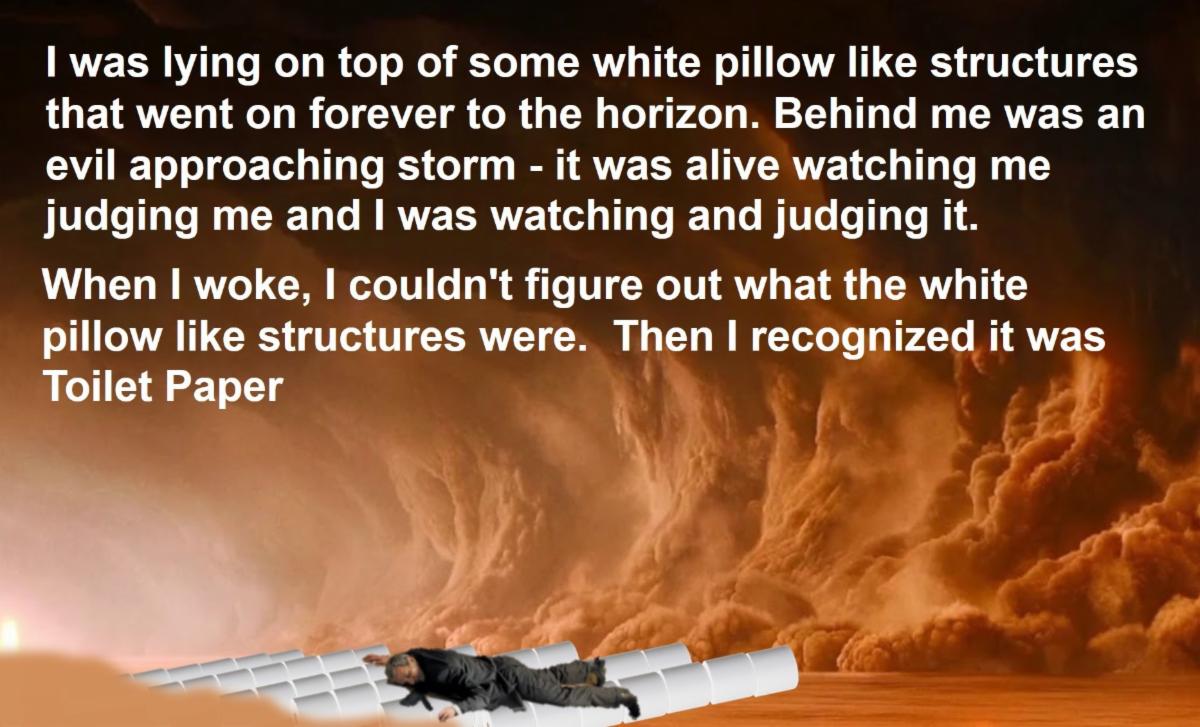
(artwork by Bob Hoss)
Clare Johnson, PhD (UK and Germany) is IASD’s most recent past President, and the author of six books including Llewellyn’s Complete Book of Lucid Dreaming. Her freshly-finished book is The Art of Lucid Dreaming. Clare runs Lucid Dreaming Ocean Retreats in Portugal as well.
What’s happening in your lockdown dreams? Is there fear and invisible enemies, or are you partying hard to compensate for not seeing your friends? Are you using your dreams for spiritual growth, or exploring the immensely magical feeling of flying? Are you escaping from giant bugs, or meeting power animals?
It’s a time when strange dreams abound as people who never normally recall their dreams find themselves waking up with a head full of rich inner imagery.
Listen to this podcast interview on lockdown dreams and nightmares.
In this podcast, Theresa Cheung, author of The Premonition Code, interviews me to find out what is happening to our dreams, why we have nightmares, how we can make sense of them, and how lucid dreaming can help us to transcend fear and create lasting inner transformation. I also touch on dreams of the deceased.
Angel Morgan, PhD (USA) is founder of Dreambridge (thedreambridge.com). a Global PhD professor at Sofia University, and IASD President. She is the author of Dreamer’s Powerful Tiger: A New Lucid Dreaming classic for Children and Parents of the 21st Century and contributed to Sleep Monsters and Superheroes: Empowering Children with Creative Dreamplay
Interview with Kelly Sullivan Walden
Lana Nasser
Originally from Jordan, performance artist Lana Nasser currently lives and works in The Netherlands.
Arab Woman Talking: The End of the World as We Know It” Podcast.
Thanks also go to Art Funkhouser who manages iasd-dreamlinks, and sends out regular articles from around the world. To be part of iasd-dreamlinks:
Post Message :iasd-dreamlinks@yahoogroups.com
Subscribe :iasd-dreamlinks-subscribe@yahoogroups.com
Unsubscribe :iasd-dreamlinks-unsubscribe@yahoogroups.com
List Owner :iasd-dreamlinks-owner@yahoogroups.com
Linda Yael Schiller, MSW, LICSW (USA) is an international speaker, dreamworker, psychotherapist, author, and professor emeritus at Boston University School of Social work. Her book Modern Dreamwork: New Tools for Decoding Your Soul’s Wisdom, 2019, Llewellyn Worldwide Publishing, is available in both e-book and print. Learn more
Linda regularly teaches dreamwork skills to helping professionals, clergy and medical professionals, interested dreamers, and at agency and corporate events and retreats both on-line and in person.
You can contact her at
http://www.lindayaelschiller.com
http://www.awaketoyourdreams.com
Here are several articles recent published in the on-line journal YourTango.com related to corona:
Why Dreams and Nightmares are so Vivid During the Corona Virus Pandemic How to Reframe Coronavirus Quarantine as a Time of Healing
10 Ways To Stop Anxiety From Infiltrating Your Dreams & Ruining A Good Night’s Sleep
On my blog www.awaketoyourdreams.com are additional articles including:
Dreams, Nightmares, Covid-19, and Reclaiming Life
Nightmares, Trauma, and Healing from PTSDreams, parts I and II
Katja Valli, PhD (Finland) is a Senior Researcher at the Department of Psychology, University of Turku, Finland and an Associate Professor at the Department of Cognitive Neuroscience and Philosophy, University of Skovde, Sweden, and co-editor of Dreams: Understanding Biology, Psychology and Culture. Her research focuses on the simulation theories of the evolutionary function of dreaming.
New Scientist
Interview also includes Mark Blagrove
Research conducted by IASD Members
McGill University Covid-19 Research Project
An international group of researchers is conducting a study on dreams, sleep, and other experiences during the COVID-19 epidemic. The study consists of an online questionnaire that takes about 35 minutes to complete. You will be asked about your dreams, sleep patterns, emotions, and other experiences during the period of social isolation. If you are interested in participating and are over 18 years old, please click on this link: https://surveys.mcgill.ca/ls/346912 (Contact covid19dreamsstudy@gmail.com)
The study is about covid and dreams + other experiences (lucidity, alexithymia, social imagery), and many IASD researchers are collaborating on it (Elizaveta Solomonova, PI; Michelle Carr, Claudia Picard-Deland, Karen Konkoly, Tore Nielsen, Antonio Zadra, Caroline Horton, Josie Malinowski, Pellerin Sikka, Jarno Tuominen).
Got Covid-19 dreams? Interested in participating in Covid-19 dream research? Here’s a list of research currently conducted by IASD members:
Collecting Covid-19 Dreams
Deirdre Barrett collection: Link to survey
Jordi Borras-Garcia This is a survey in which I am collecting dreams related to the coronavirus (in Spanish): https://forms.gle/ZneDtAQhYWGKQZ146 I don’t intend to do any article or study on this topic at the moment (for this, we are already sharing Deirdre Barrett’s survey with our contacts), but I do collect them in order to comment, based on them, on aspects that may be of interest to all the people attending the Instagram Live sessions.
Statement from Kelly Bulkeley: I have a couple of projects where I’m gathering pandemic-related dreams, but not through an open portal. What I’d really like to offer is a willingness to collaborate with anyone who has a collection of dreams they would like to analyze/explore/interpret using the resources of the Sleep and Dream Database.
Dream Research Institute (UK): DRI has set up a survey to collect dreams related to the pandemic, including pre-cognitive ones, though not specifically. Here’s the link.
Pandemic dreams survey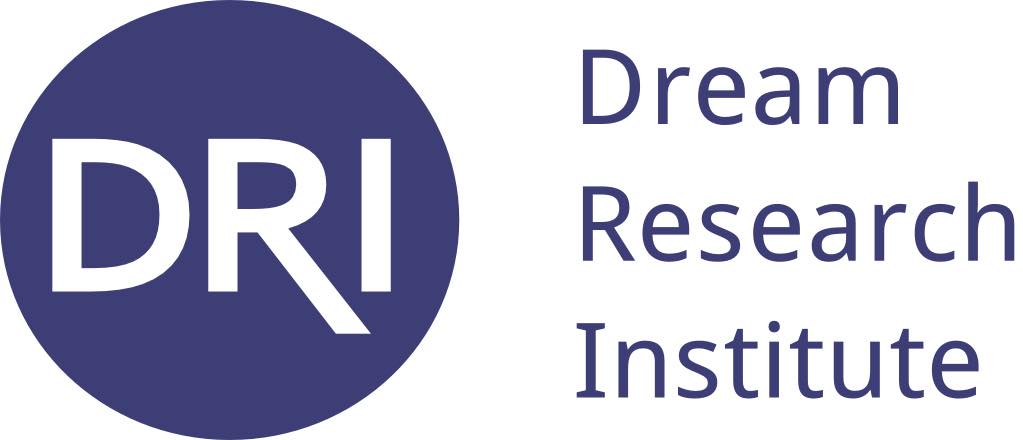 Welcome to the ‘Pandemic dreams survey’ questionnaire about dreams relating to pandemic illness. You are invited to take part in this research project being conducted by the Dream Research Institute (DRI).
Welcome to the ‘Pandemic dreams survey’ questionnaire about dreams relating to pandemic illness. You are invited to take part in this research project being conducted by the Dream Research Institute (DRI).
Project Manager, Dave Billington
Art Funkhouser and Maria Kotli
Dreams in the time of Corona
An interest in the collective and archetypal symbols that are activated in dreams seems to be on the increase these days. We are currently aware of three international projects on the subject.
One such project has been initiated by a Polish Developing Group who has contacted other Developing Groups in Central- and Eastern Europe with the aim of collecting dreams and subsequently applying them in a research-project.
Another project is taking place within a large ongoing google-group where the members of the group write, interpret and discuss their dreams
Should anyone be interested in finding out more about these two projects, you are welcome to write to misser.berg@mail.dk
The third project, ‘Dreaming in times of turmoil’ is an anonymous online questionnaire organized by a Jungian analyst. The questionnaire is open to everybody and may be found at the following address: Dreaming in times of turmoil
It will be very interesting to see the results of these projects.
Merel Hak (the Netherlands)
Email (merel@me.com) Subject Line: Collecting Covid-19 dreams
Brigitte Holzinter (Austria)
I am involved in two surveys:
1)The Institute for Consciousness and Dream Research is pursuing a survey about sleeping and dreaming under Covid-19: find more at www.schlafcoaching.org – this survey is closing soon;
2)ICOSS International – an international survey about sleep and dreams – my colleagues could be persuaded to include a few questions about dreaming and nightmare prevalence. This survey is opening soon and will be very interesting and comprehensive! The new survey will also be at www.schlafcoaching.org
Chris Ufere is a member of IASD and the CEO of Unconscious Cognition, Inc., the developer of uDreamed app. The app is popular with dreamers around the world who are interested in using dream experiences to improve lives.
We completed a comprehensive analysis (over 3000 detailed dream records) of what our users around the world dream about to understand differences in dream experiences before and during Covid-19. The findings are interesting and certainly will appeal to IASD members. We presented the findings in this powerfully informative video link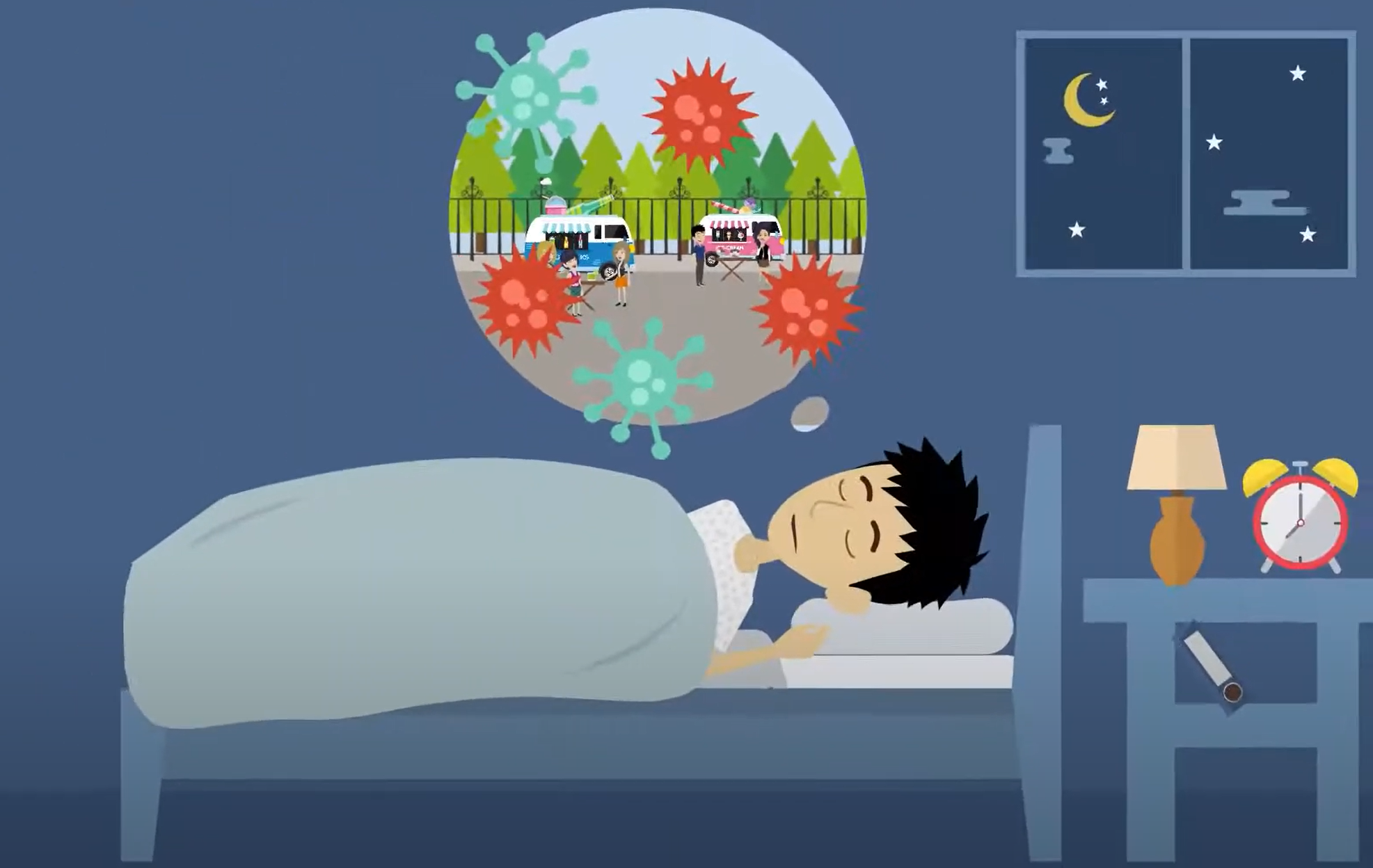
An Empirical Study of How the COVID Vaccine Affects Dreaming
uDreamed conducted a survey-based study of 316 participants from around
the globe. Participants were solicited using the Prolific data
collection platform. Of those, five responses were largely incomplete,
leaving us with a final sample size of 311. Participants were primarily
from the United States (n=244) and Europe (n=56), with 54% female, and
an average age of 33.45 years (sd=13.51), who had received at least one
COVID-19 vaccination (47% were fully vaccinated). Among them, 50%
received Pfizer, 34.7% received Moderna, with the remaining reporting a
different brand (e.g., AstraZeneca or Johnson & Johnson). Our survey
included measures for how participants’ dreams had changed since
receiving the vaccine, such as dream frequency, vividness, intensity,
and bizarreness. We also provided an open-ended question for the
participant to narratively describe how their dreams had changed when
comparing before and after receiving the vaccine. These open-ended
responses were subjected to standard text analytics such as frequency
analysis, to identify patterns. Multiple similar responses were required
to constitute a pattern. Link to the Study
